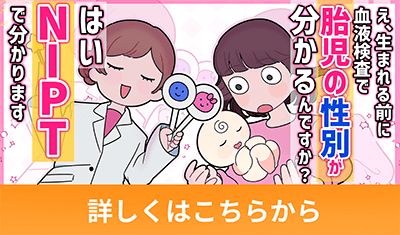What is Prenatal Education
Prenatal education might be perceived by many as “education that starts during pregnancy.”
In the past, methods such as playing classical music or English for the baby were commonly used with the goal of early education. However, the current purpose of prenatal education has shifted towards “interaction between the mother and father with the baby before birth.”
Additionally, it is considered prenatal education when the mother experiences less stress and can spend her time peacefully, as this also has positive effects on the baby. Many forms of prenatal education now focus on parent-child communication and the mother’s relaxation.
Scientific Basis of Prenatal Education
It has not been proven that prenatal education during pregnancy can make a baby a genius or determine their future traits. However, it is known that a baby’s brain and nervous system begin to develop before birth and can sense and respond to the environment outside the mother’s womb.
The Japan Prenatal Education Association issues a qualification called “Prenatal Education Advisor,” and qualified individuals are actively spreading knowledge about prenatal education nationwide.
In a survey conducted among pregnant women at a certain hospital, almost all respondents were aware of the term “prenatal education,” and 70% believed that prenatal education is necessary. This indicates that prenatal education is a field of growing interest.
Development of the Nervous System
Among the human brain and nervous system, the nerves related to hearing develop the earliest, and studies on how babies in the womb respond to sound have been conducted since the 19th century.
Research has shown that babies can perceive voices through bone conduction in the head, that their heart rates increase in response to auditory stimulation, and that their heart rates decrease when they hear human voices. This demonstrates that babies can sense sounds and voices from outside the womb.
While not all sounds heard by the mother are directly transmitted to the baby, it is said that babies begin to respond to auditory stimuli around the 24th week of pregnancy.
The mother’s voice is particularly easy to transmit as it vibrates through her body, but there are reports that sounds such as the heartbeat and blood flow are more audible to the baby than voices.
Additionally, research has shown that newborns prefer their mother’s voice over unfamiliar female voices right after birth.
These findings suggest that prenatal education is effective.

When to Start Prenatal Education?
Prenatal education can be started at any time. Some people begin as soon as they find out they are pregnant, while others start when they feel fetal movements or after going on maternity leave.
The baby’s auditory organs start to develop around weeks 16-20, and by weeks 24-26, the baby can recognize vibrations picked up by the ears as “sound.”
After 16 weeks of pregnancy, the hippocampus, a part of the brain responsible for memory, begins to develop, allowing the baby to remember the mother’s voice heard daily. By weeks 24-27, the part of the brain that distinguishes tones is also fully developed, enabling the baby to differentiate between the mother’s and father’s voices.
Although prenatal education can be started at any time, the period between weeks 16-27, when the auditory system and hippocampus are developing, is considered a good time to begin.
Very Early Pregnancy (Weeks 2-3)
Although this period may be a time when the baby bump is not yet prominent and it is difficult to feel the baby’s presence, recommended prenatal education activities include placing your hand on your belly, gently stroking your belly, and giving your baby a name.
Even though the baby’s bodily functions are still underdeveloped, you can start talking to them by greeting them with “Good morning” and “Good night.” It is also a good idea to talk to your baby about your daily experiences and feelings.
Early Pregnancy (up to 13 weeks and 6 days)
At this stage, most of the baby’s organs are formed, and the baby’s brain and nervous system, as well as their five senses, are rapidly developing. Among the five senses, the sense of touch develops the earliest. Touching your belly provides positive stimulation to the baby.
Additionally, the mother’s emotions are conveyed to the baby in the womb. If the mother remains calm and peaceful, the baby will also feel calm and peaceful.
NIPT (Non-Invasive Prenatal Testing) Immediately After Confirming Pregnancy with Ultrasound
In cases of advanced maternal age or after undergoing fertility treatments, there can be significant stress and anxiety about the health of the baby. If regular check-ups alone do not alleviate these concerns, it is also possible to undergo tests such as NIPT (Non-Invasive Prenatal Testing).
NIPT (Non-Invasive Prenatal Testing) is a test that examines the baby’s chromosomes by taking a blood sample from the mother. Compared to amniocentesis and chorionic villus sampling, it has the advantage of not placing a burden on the baby.
Mid-Pregnancy Prenatal Education (Weeks 14-27 and 6 days)
At this stage, the baby’s hearing continues to develop, allowing them to hear sounds from outside the womb. Try talking to your baby or listening to your favorite music. As the baby’s memory also starts to develop, reading picture books aloud or singing songs can be beneficial.
When you begin to feel fetal movements, take the time to relax and enjoy these sensations. Gently stroking your belly provides positive stimulation for the baby.
Late Pregnancy Prenatal Education (Week 28 and beyond)
The baby continues to grow and their physical development is nearing completion. Interact with your baby by touching your belly and talking to them as if you are playing together. Enjoy a leisurely walk and describe the scenery to your baby, or take deep breaths to provide good oxygen for your baby.
Recommended Prenatal Education
Naming the Fetus
In addition to the baby’s name after birth, some people choose to give their baby a fetal name. Some find it convenient for communication, while others feel uncomfortable with the name changing before and after birth. It’s best to choose the approach that feels most comfortable for you.
Listening to Music
When it comes to prenatal music, you might think of classical music and Mozart. However, any music that helps the mother relax is suitable, and it doesn’t have to be classical. For music-loving mothers, this can be a form of prenatal education that can start at any time.
Some mothers worry that using earphones means the baby won’t hear the music, but the important thing is that listening to music helps the mother relax and feel calm.
Reading Picture Books Aloud
It’s good to choose picture books that you can read in a relaxed manner. Some people use this time to practice reading aloud for when the baby is born. There are various prenatal education products available, and recently, methods such as using prenatal education apps, picture book apps, DVDs, and YouTube for storytelling have become popular.
Additionally, there are reports that babies tend to feel comforted by sounds they heard in the womb even after birth. In this sense, exposing them to foreign languages such as English during pregnancy might reduce their resistance to these languages after birth.
Talking to the Fetus
A mother’s gentle voice is the greatest comfort for the baby. It’s recommended to talk about enjoyable and happy experiences from your day, using words that foster positive feelings. This type of prenatal education requires no preparation and can be started at any time.
Rubbing, Lightly Pressing, or Tapping the Belly
Gently stroke your belly as if you are soothing your baby. When you feel fetal movements, try giving gentle pushes or taps to signal to your baby. The baby might respond with movements in return.
Light Exercises
Engaging in activities such as walking, stretching, maternity yoga, or maternity swimming within a comfortable range is beneficial. Anything that makes the mother feel good contributes to effective prenatal education.

Impact of Stress During Pregnancy
The causes of increased stress during pregnancy include changes in hormone balance. During pregnancy, the levels of two female hormones, estrogen and progesterone, change significantly.
As pregnancy progresses, the secretion levels of estrogen and progesterone increase. Particularly, progesterone can amplify mood swings, making it easier to feel stressed.
One reason stress is harmful to the body of a pregnant woman is that stress causes blood vessels to constrict. When the body feels stress, it enters a state of tension and releases hormones such as adrenaline. During this time, the blood flow to the stomach, intestines, and uterus decreases.
The baby in the womb receives nutrients through the placenta from the blood flowing through the mother’s uterus. If blood flow is poor, the baby can suffer from a lack of nutrients. If this condition persists, it can negatively affect the baby’s development.
Additionally, stress causes the release of cortisol, one of the stress hormones. Chronic release of this hormone can negatively impact the body and reduce the baby’s movements and heart rate. Although cortisol is generally prevented from reaching the baby by the placenta, if the placenta is immature or not functioning well, cortisol can affect the baby. Increased cortisol levels are believed to impact the development of the nervous system.
Conclusion
Mothers often wonder when to start prenatal education, but not engaging in prenatal education or not talking to the baby during pregnancy does not cause any harm.
When practicing prenatal education, it is important to go at a pace that is comfortable for both the mother and father, ensuring that it does not cause stress. Gaining accurate knowledge and enjoying a healthy maternity life is key.
【Reference】
- Japan Prenatal Education Association
- Yumi Ito – Maternal Health, 2011 “The Impact of Reading Picture Books on Maternal Anxiety as a Motivation for Prenatal Education by Mothers”
Article Editorial Supervisor

Dr Hiroshi Oka
NIPT specialist clinic, MD
Graduated from Keio University, School of Medicine
 中文
中文






















